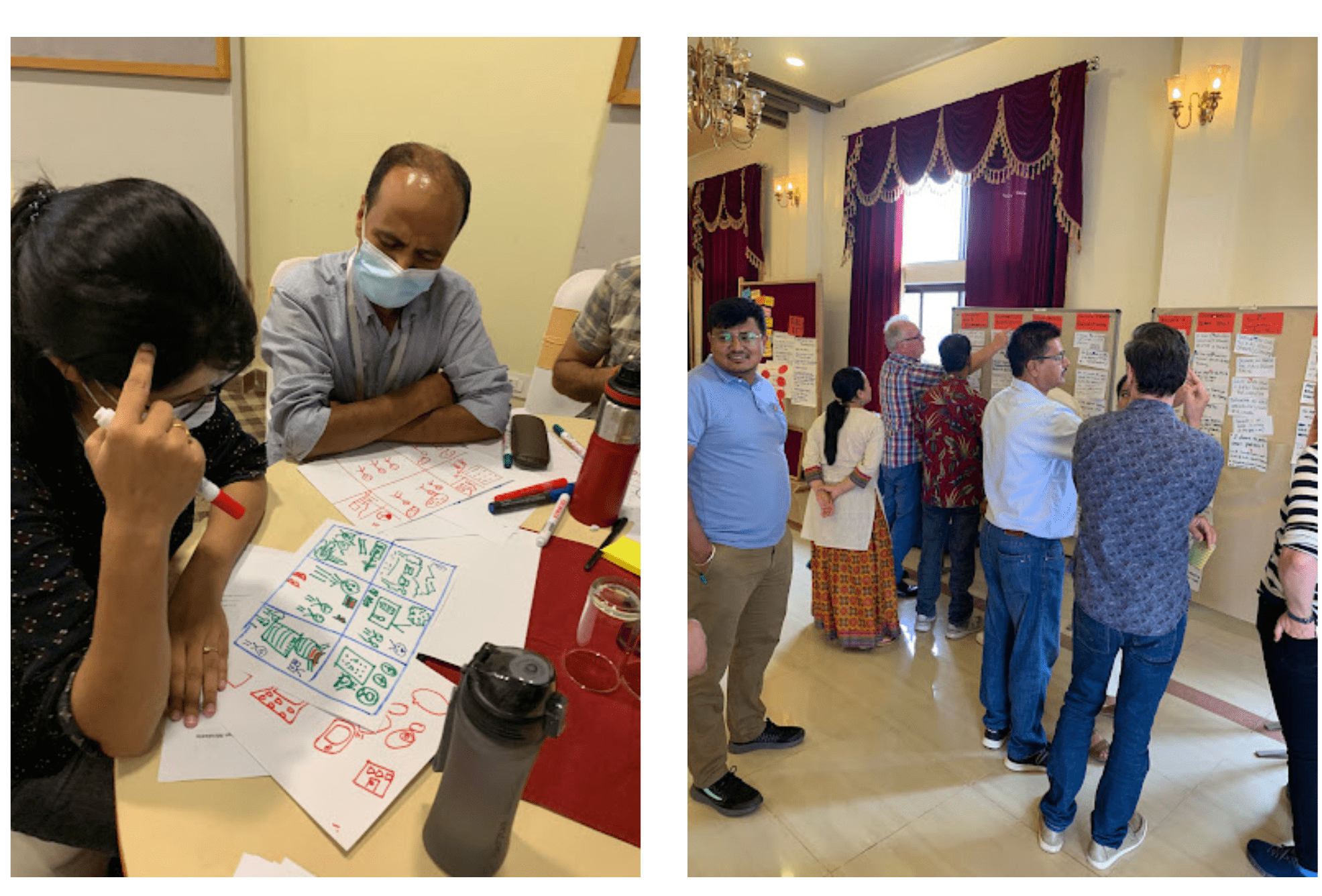By Bahar Kumar
Nepal’s development sector is beginning to take a deeper look at whether their ways of working are resulting in the impact we want to see in our communities. Best practices that were established years ago are no longer relevant in this rapid-changing environment. We’re facing a climate crisis, political shifts, and economic changes with Nepalis having increased access to data, information, and skills. Needs and desires are changing and therefore our approaches and solutions require a significant transformation.

Our Impact Hub Kathmandu team has always used Human-Centered Design (HCD) as an approach to understanding the true pain points of our users, beneficiaries, target groups – ultimately the PEOPLE we are serving. Rather than sitting in remote offices here in Kathmandu and designing programs and activities based on our outdated assumptions, we are forced to go back and reconnect with our communities. Leveraging our natural human abilities to empathize and remain curious, allows us to discover new solutions to complex challenges we’re facing today.
Due to this growing need to explore new solutions, our team has been focusing on adapting our HCD tools and approaches for the private sector to now serve the development sector. We’ve been supporting both bi-laterals and INGOs such as GIZ, Plan International & The Asia Foundation to use HCD as a program design & adaptation approach. It’s been amazing to see what has been unleashed! We’re seeing diverse teams come together to challenge one another and collaborate through a creative yet analytical process that is based on real human behavior, as opposed to our own beliefs. They emerge with greater clarity on the true problems and challenges being faced and possible solutions they may not have considered earlier.

“Design Thinking changed my perspective of thinking and it was helpful in solving problems in a more scientific and step-by-step manner. This has taught me that others’ opinions really matter and I should be receptive to such feedback without being defensive. It has developed my reasoning skills and to be more empathic towards the situations and problems.” ~Plan International, Nepal Staff
In recent months we conducted a variety of different workshops from rapid Design Sprints to longer HCD training to help teams learn the skills and practice using the tools. In addition, we also facilitate the entire HCD cycle with organizational design teams to help them move through the process smoothly with an external coach. This learning by doing has led to the publication of our Human-Centered Design Field Guide which outlines the entire process in a user-friendly tool for teams to begin practicing.
It’s been so interesting to witness how participants start with a sense of skepticism to learn yet another “trendy” approach to tackle their extremely challenging work – to a place of inspiration to approach their work with renewed energy. The stories and narratives they hear from their communities allow them to see brilliant new solutions. This mindset shift is the biggest success and becomes the catalyst for these teams to continuously iterate and adapt their approaches and not assume that what is working now, will continue working.

“It was a wonderful experience for me. I had led myself to believe that I have a creative block but understanding an individual at a personal level and being open to working with my team helped me practice a creative part of myself.” ~HCD workshop participant
If you want to bring Human-Centered Design to your organization or team, reach out to our amazing trainers, facilitators, and designers at [email protected].